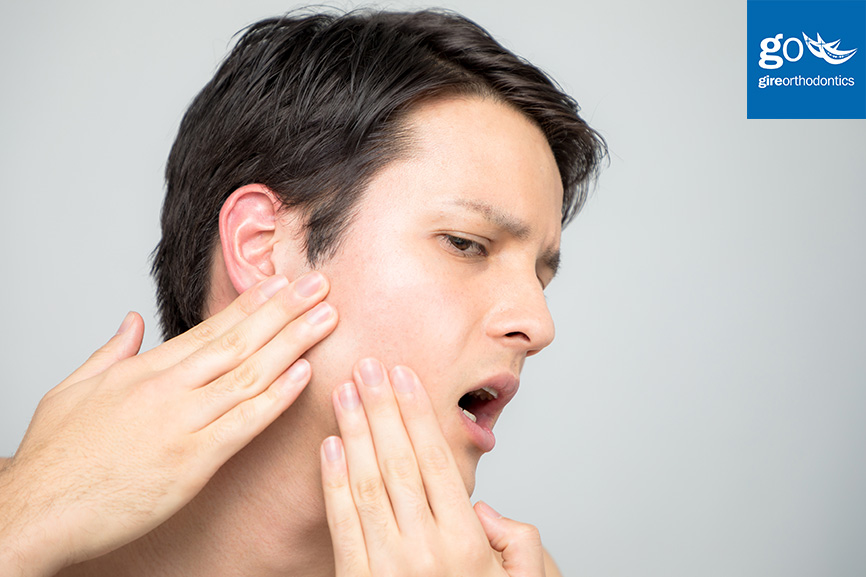
But if you’ve been living with TMJ pain your orthodontist may be able to offer some relief.
“An oral surgeon, TMJ specialists, and orthodontists, are actually the ideal people to diagnose and treat TMJ,” says Dr. Robert Gire. “Those folks have dedicated their lives to studying how the jaw works and improving bites to ensure the face works in harmony.”
Orthodontic treatment is a common way to help TMJ patients whose pain is the result of a bad bite. If not corrected, the pain may only get worse and it can lead to other issues. A bad bite is not only painful, it can cause damage to the teeth from improper pressure when biting down. That can lead to chipping, cracking and breaking of the teeth.
TMJ disorder occurs when the lower jaw is out of its proper alignment. Think about how often you use your jaw every day; it is one of the most commonly used joints in the body and it can become stretched or damaged over time. If it moves too far out of position either due to the ligaments or muscles stretching or due to injury, TMJ disorder can occur.
Braces can actually be one of the best treatments for TMJ disorders. A common misconception is that braces are simply for cosmetic reasons. While it is true that braces provide a beautifully straight smile, they also correct the bite, creating a smile that works in harmony. Straight teeth must also be properly aligned in order to have a smile that works properly. Even if your teeth are relatively straight, your bite can still fall out of alignment leading to TMJ issues.
Another common treatment for TMJ disorder is a nightguard or splint. The goal of the splint is to hold your teeth apart, which then eases pressure on the joint. A splint can be worn around the clock while a nightguard is worn at night. They allow the jaw to fall into its correct position, easing pain associated with TMJ.
However, braces will offer the best long-term solution to TMJ because braces will work to actually correct the bite relationship. Once a patient is finished with braces, a retainer will ensure the bite stays in place helping to ensure the TMJ disorder does not reoccur.
If you suffer from jaw pain or other facial pain such as headaches or earaches, schedule an appointment with Dr. Gire at Gire Orthodontics today by calling 562-690-1199 (La Habra) or 909-393-9911 (Chino Hills).

